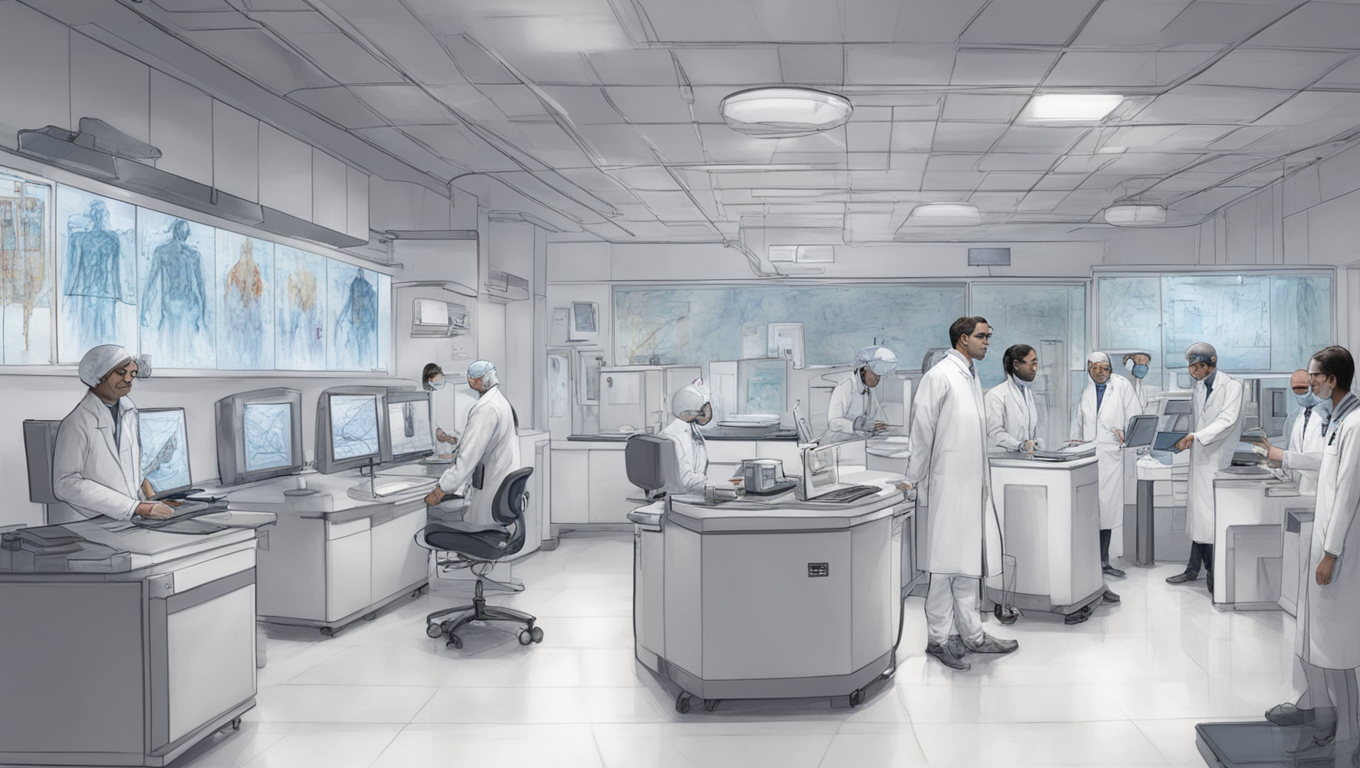With the emergence of artificial intelligence (AI), the field of cancer detection has experienced a revolutionary transformation. Tata Memorial Hospital, India’s largest cancer hospital, has embarked on a groundbreaking initiative that utilizes AI to diagnose cancer at an early stage, providing insights into tumor characteristics and patients' response to treatment. This innovative tool not only aids in avoiding unnecessary chemotherapy for patients who are predicted to be non-responders but also paves the way for improved patient outcomes.
The Bioimaging Bank at Tata Memorial Hospital has integrated 60,000 digital scans of cancer patients over the past year, establishing a foundation for developing a cancer-specific algorithm. The hospital has also started implementing AI to reduce radiation exposure for pediatric patients undergoing CT scans. Dr. Sudeep Gupta, the director of Tata Memorial Centre, emphasized the urgency of specialized manpower for early cancer diagnosis, as the number of cancer cases is projected to double in the coming decade. He stated, “Cancer can be cured in many cases if detected early and treated swiftly.”
AI plays a crucial role in cancer diagnosis by utilizing radiomics, a technique that extracts essential information from medical scans that may not be discernible to the human eye. Dr. Gupta explained, “Advanced algorithms and deep learning to analyze medical data can help detect cancer early on.” The collaborative efforts between Tata Memorial Hospital, the Indian Institute of Technology-Bombay (IIT-B), and other medical institutions such as AIIMS, RGCIRC, and PGIMER are instrumental in advancing the deep learning capabilities of AI. These institutions contribute medical scans that assist in training the algorithm and enhancing its accuracy.
One of the remarkable aspects of AI is its ability to predict tumor prognosis directly from medical images. These specialized algorithms, known as prognostication or prediction algorithms, can anticipate tumor aggressiveness, immunosynthesis rate, and the likelihood of a patient’s survival based on CT or MRI scans. However, it is important to note that the final diagnosis and treatment decisions are still made by experienced doctors. Dr. Gupta emphasized, “The algorithms can aid in prediction and prognosis, but an experienced doctor will make the final diagnosis and treatment plan.”
So, how exactly does the AI algorithm work? AI systems use machine learning to analyze radiological and pathological images, enabling them to recognize unique features associated with different types of cancer. This technology allows for the assessment of tissue changes and potential malignancies, leading to early cancer detection. Dr. Suyash Kulkarni, the head of the Department of Radiodiagnosis at Tata Memorial Centre, explained how a comprehensive imaging approach, combined with AI and machine learning protocols, can develop predictive models to determine tumor survival and guide treatment decisions.
Dr. Kulkarni provided an example of the transformative impact of AI algorithms developed at Tata Memorial Hospital. By enhancing images using AI algorithms, the hospital has achieved a remarkable 40% reduction in radiation exposure for children during imaging procedures, while maintaining diagnostic quality. In addition, the hospital has initiated a pilot project utilizing a specific algorithm in the ICU for thoracic radiology, which focuses on imaging and diagnosing chest-related conditions. The AI algorithm has demonstrated 98% accuracy in providing immediate diagnoses, which are then cross-checked by doctors. This early diagnosis capabilities of AI not only save time but also have the potential to streamline CT scan analyses and expedite patient access to treatment.
AI in cancer detection holds tremendous promise, particularly in rural areas with limited access to healthcare facilities. Dr. Gupta envisions a future where AI can detect cancer with a simple click, eliminating the need for extensive tests. This technology has the potential to empower general practitioners to diagnose complex cancers accurately and significantly enhance precision in cancer solutions. With continuous learning, AI can improve accuracy, ensure timely cancer diagnoses, and aid healthcare professionals in decision-making processes.
However, as the use of AI tools increases, there are concerns about the potential elimination of experienced healthcare providers. Dr. Gupta emphasized the irreplaceable value of the human touch in medical expertise, nuanced judgment, and patient interaction. He called for collaborative efforts between AI and medical professionals to prioritize enhancing efficiency, accuracy, and patient care. Rigorous regulatory scrutiny is necessary to ensure the responsible implementation of AI in healthcare and address ethical concerns. With the right approach, AI has the potential to transform cancer detection and improve patient outcomes, while preserving the invaluable role of healthcare professionals.





Use the share button below if you liked it.